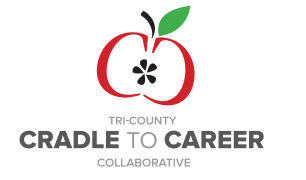Juneteenth: Black Liberation and Technology
By Akua Page
Juneteenth is a celebration of freedom and liberation for Black Americans. The Emancipation Proclamation was declared by President Abraham Lincoln on January 1, 1863, however, the enslaved Africans in Galveston, Texas did not learn of their freedom until June 19th, 1865, commemorating Juneteenth! Today, Juneteenth is celebrated throughout America and finally became a federal holiday on June 17, 2021.
Slaves or Agricultural Scientists and Techies?
Human power by enslaved Africans was the technological advancement that helped fuel America’s rapid economic growth. Africans, mainly from West and Central Africa were targeted due to their scientific knowledge of rice cultivation. “Judith A. Carney’s Black Rice: The African Origins of Rice Cultivation in the Americas…describes how the South Carolina rice industry was built not only by enslaved labor but by the agricultural and technological knowledge brought over by Africans.” Rice became a symbol of enslavement for Africans in America, especially in South Carolina. However, rice was also a symbol of liberation. Before being forced onto slave ships, African women would braid rice seeds into their daughter’s thick, tight, curly hair for food and as a method to keep their culture alive. According to historians, over 12 million Africans were forced to migrate to the Americas during the trans-Atlantic slave trade. Historical data estimates that 10.7 million Africans survived and 2 million died during the middle passage to America.
Algorithmic Justice
According to Google, the word ‘technologist’ is “an expert in a particular field of technology.” Although the majority of the images will portray white males, the origins of technology in America can be traced to Africa. Ways to celebrate Juneteenth, Black liberation and technology: Acknowledge the African technological contributions which can be found in America’s soil and food system De-program your mind from racism and challenge systems that still practice forms of oppression Empower Gullah Geechee people Explore ways to make tech sectors more inclusive by supporting STEM education for Black and Brown youth.
Tech and Social Justice Initiatives
Ida B. Wells Just Data Lab
Data 4 Black Lives
ColorCoded
Recommended Reading
“Race After Technology: Abolitionist Tools for the New Jim Code” is a 2019 American book focusing on a range of ways in which social hierarchies, particularly racism, are embedded in the logical layer of internet-based technologies. Book by Ruha Benjamin.
“Algorithms of Oppression: How Search Engines Reinforce Racism” is a 2018 book by Safiya Umoja Noble in the fields of information science, machine learning, and human-computer interaction.
“Technicolor: Race, Technology, and Everyday Life” By Alondra Nelson
“Black Rice” By Judith A. Carney
Recommended Film
Local Juneteenth Events
Sat, June 18: Family Fest
Sat, June 18. Gullah Freedom
Sun, June 19: Lowcountry Week
Dates to Remember
Friday, June 17: Honoring Lives Stolen and Survivors of Mother Emmanuel
June 21: Cynthia Graham Hurd Day CCPL All Day In Person
June 22: Day 1 Youth Conference- Drone Event 9am in Person

Ida B. Wells
Mrs. Wells was journalist in the 1870s. She documented the lynching’s of Black Americans which was a constant occurrence in America after slavery was abolished. The data she collected was documented in her anti-lynching campaigns and helped bring awareness to the unjust lynching’s of Black people in America
In today times she would have been known as a data scientist.
